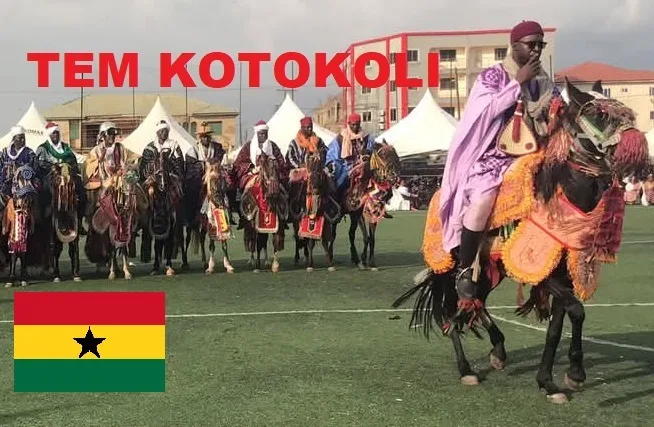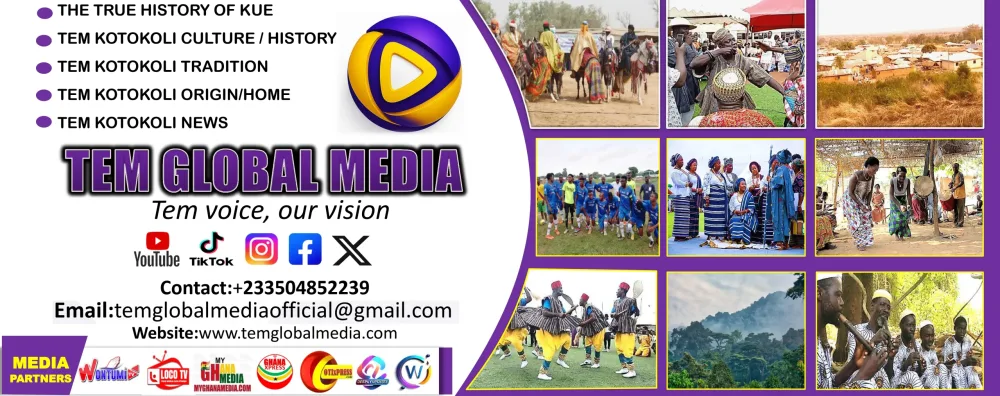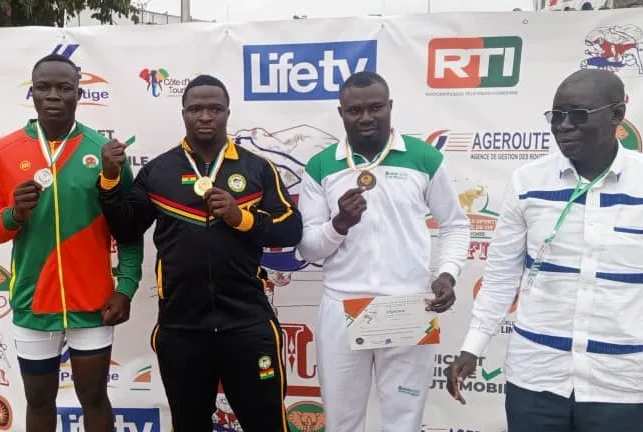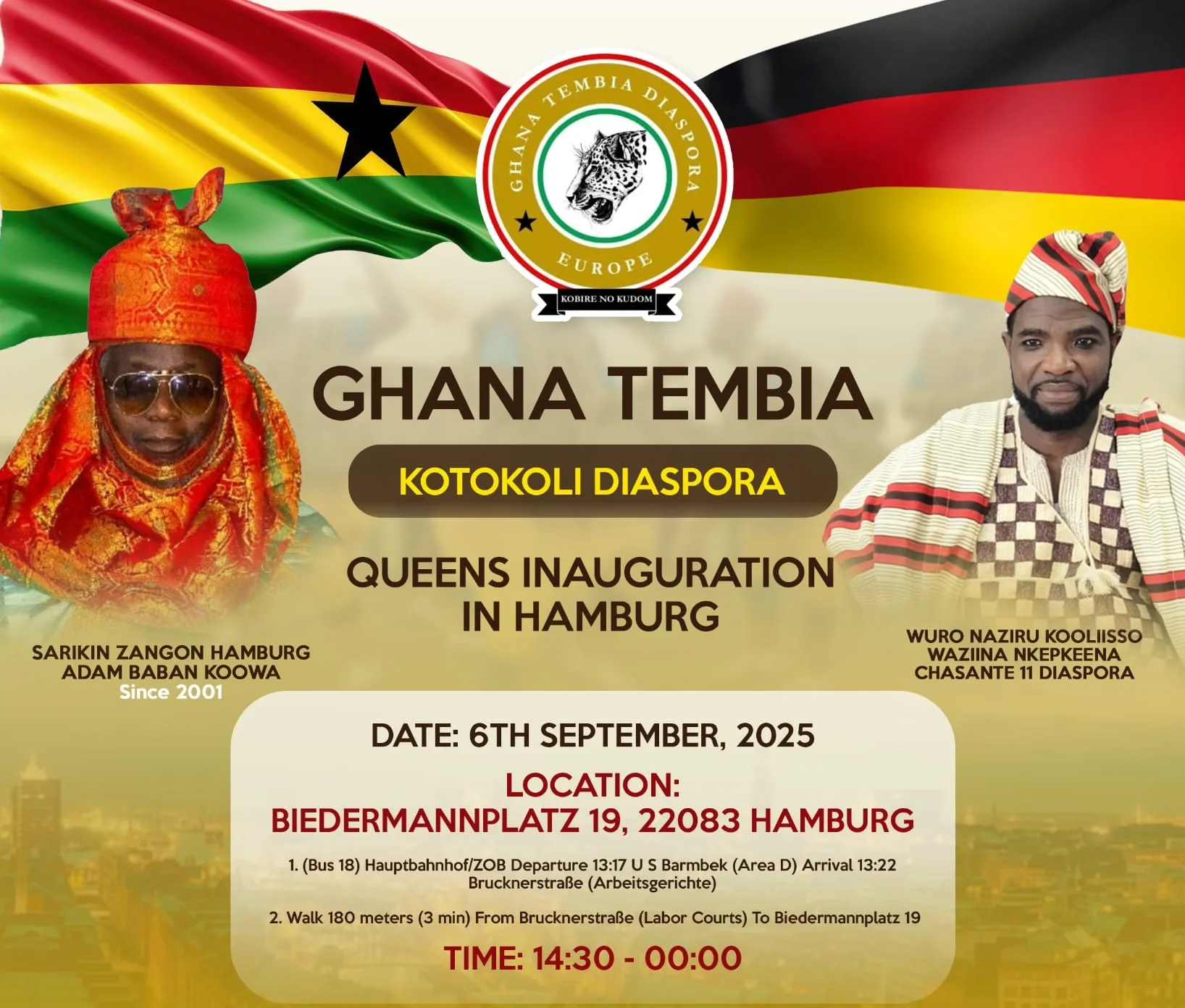Are the Tem Kotokoli Ghanaians? A Constitutional and Historical Perspective

The question of whether the Tem Kotokoli people are Ghanaians is not just one of ethnicity or oral tradition, but of constitutional law, colonial history, and international politics. This post will explore the legal and historical grounds that affirm the Ghanaian identity of the Tem Kotokoli people, particularly those in the town of Kue.
Understanding the Ghanaian Constitution: Who Is a Ghanaian?
Ghana’s 1992 Constitution clearly outlines who qualifies as a Ghanaian citizen under three main categories:
1. By Birth
A person is a citizen of Ghana by birth if:
They were born in Ghana before 6 March 1957 and one of their parents or grandparents was born in Ghana.
They were born in or outside Ghana after 6 March 1957, and either parent or grandparent was a Ghanaian citizen.
2. By Descent
If a person is born outside Ghana after 6 March 1957 but one of their parents is a Ghanaian citizen, they are considered Ghanaian by descent.
3. By Registration or Naturalization
Citizenship can also be acquired through legal application processes such as marriage to a Ghanaian, long-term residence, or other state interests.
What Makes Someone Ghanaian?
Being Ghanaian is not limited to holding a passport or national ID. It encompasses a mix of legal recognition, historical presence, cultural belonging, and national loyalty. Key components include:
Legal status under the Constitution (by birth, descent, or naturalization).
Affiliation with a recognized ethnic group or community within Ghana.
Active participation in Ghana’s civic and national life.
Respect for the sovereignty and laws of the Republic of Ghana.
By these definitions, the Tem Kotokoli people—especially those from Kue—are Ghanaians in every respect.
Who Are the Tem Kotokoli People?
The Tem Kotokoli people are an ethnic group primarily found in Ghana, Togo, and Benin, with diaspora communities in other parts of the world. Their ancestral land spans from Kue (in what is today Ghana’s Oti Region) to the eastern region of present-day Togo. They are culturally distinct, with their own language (Tem), customs, and chieftaincy system.
Pre-Colonial and Colonial History of Tem Kotokoli Land
Long before the Europeans arrived, the Tem Kotokoli people had settled in areas like Kue. Their historical presence on this land is not a matter of migration from elsewhere but of ancestral inheritance. When the Germans colonized the area in the late 19th century, the Tem Kotokoli found themselves under German Togoland.
After World War I, German Togoland was split into British Togoland and French Togoland under the League of Nations mandate. Kue fell under British Togoland, administered by the British together with the Gold Coast.
The 1956 UN Plebiscite: Who Organized It and What Happened?
As decolonization swept across Africa, the fate of British Togoland needed to be decided. The United Nations, in collaboration with the British Government, organized a plebiscite (referendum) on 9 May 1956. The goal was to determine whether the people of British Togoland wanted to:
Join the Gold Coast (which was on its path to independence as Ghana), or
Remain separate and possibly reunite with French Togoland (modern-day Togo).
Results of the Plebiscite:
58% voted in favor of integration with the Gold Coast.
The remaining 42% preferred separation.
The people of Kue, including the Tem Kotokoli, participated in this vote. By choosing to be part of the Gold Coast, they affirmed their political and national allegiance to what became independent Ghana in 1957.
Why the Tem Kotokoli of Kue Are Ghanaians
1. Historical Presence Before Ghana’s Formation
The Tem Kotokoli have been in Kue and surrounding areas long before Ghana was formed. They did not migrate into Ghana; rather, the border shifted around them through colonial boundary redefinitions.
2. Participation in the UN Plebiscite
Their participation in the UN-organized vote and their support for integration with the Gold Coast legally sealed their Ghanaian identity.
3. Constitutional Backing
Most Tem Kotokoli people today are born in Ghana, and their parents and grandparents lived in Ghana post-1957. This meets the constitutional criteria for Ghanaian citizenship by birth or descent.
Even if a Tem Kotokoli person is not from Kue and he was in any part of Ghana before 1957, he is still a Ghanaian by constitutional law
4. Integration into Ghanaian Society
The Tem Kotokoli have fully integrated into Ghana’s social, economic, and political life. They pay taxes, vote in national elections, and contribute to national development.
Addressing Common Myths
“They are Togolese.”
While the ethnic group spans both Ghana and Togo, the Tem Kotokoli of Kue are not Togolese. Their land became part of Ghana through a democratic process overseen by the UN and Britain.
“They are not indigenous to Ghana.”
Indigeneity is about historical presence, not arbitrary borders. The Tem Kotokoli are indigenous to the land they’ve always occupied, which now falls within Ghana’s legal boundaries.
Conclusion: Tem Kotokoli—Ghanaians by Law, History, and Identity
The Tem Kotokoli of Kue are Ghanaians by every legal, historical, and ethical standard. Their story is a testament to the complexities of African colonial history, but also to the enduring legitimacy of indigenous communities that chose to be part of Ghana.
As we continue to build a united and inclusive nation, recognizing the rightful place of groups like the Tem Kotokoli strengthens our democracy and affirms the true meaning of citizenship.
Share your thoughts in the comments. Were your ancestors part of the 1956 vote? Let’s keep our history alive.



